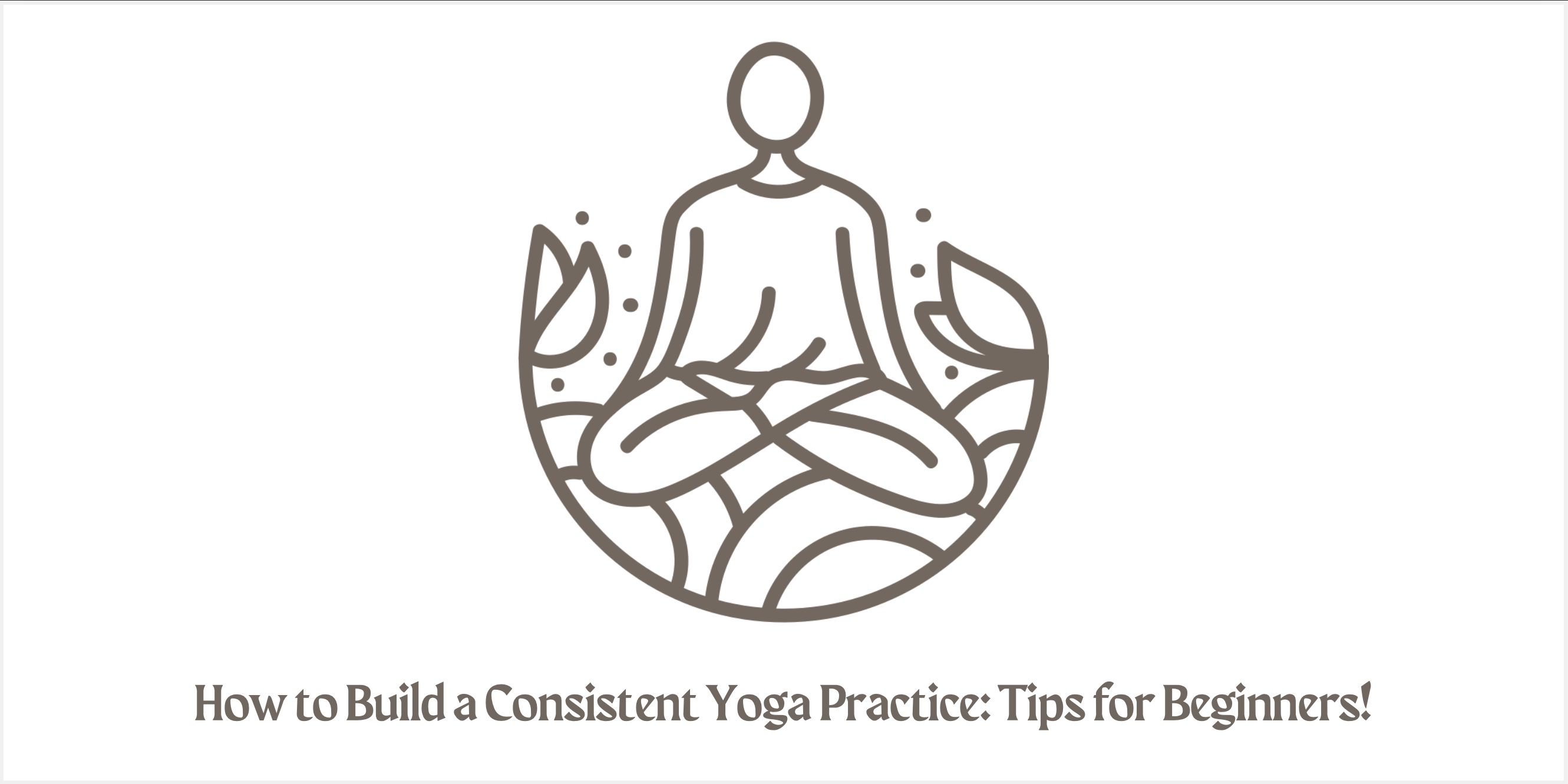
How to Build a Consistent Yoga Practice: Tips for Beginners
Are you new to yoga and curious about establishing a continuous practice? You are not alone. Many individuals find it difficult to establish a schedule that allows them to practice yoga continuously. Yet, a consistent yoga practice is attainable with the correct attitude, commitment, and a few suggestions. In this blog, we will look at the benefits of yoga and offer beginner-friendly advice for establishing a steady yoga practice.
Benefits of Yoga
Yoga is a centuries-old practice that began in India. It is a mind-body discipline that incorporates physical postures, breath control, and meditation. The benefits of yoga include physical, mental, and emotional well-being. Here are some of yoga’s benefits:
Improves Flexibility and Strength
Asanas, or yoga postures, help with flexibility, balance, and strength. With constant practice, your muscles will become more flexible, reducing the risk of injury.
Reduces Stress and Anxiety
One of the benefits of yoga is its calming effect on both the mind and the body. Stress and anxiety can be alleviated using yoga postures, breathing techniques, and meditation. Moreover, it aids in the management of the body’s stress response system, resulting in a reduction in cortisol levels.
Boosts Immune System
Yoga has been discovered to enhance the immune system by enhancing circulation, reducing tension, and promoting relaxation. The physical practice of yoga has also been demonstrated to stimulate the lymphatic system, which plays a role in removing toxic toxins from the body.
Improves Sleep
By lowering stress, anxiety, and tension, yoga improves sleep quality. Practising yoga postures, breathing, and meditation helps calm the mind, improving the quality of sleep.
Enhances Mental Clarity and Focus
Yoga has been shown to increase mental clarity and focus by promoting relaxation and reducing tension. Yoga postures, meditation, and breathing exercises can help focus, memory, and overall mental wellness.
Tips for Building a Consistent Yoga Practice
Now that you are aware of the numerous benefits of yoga let’s discuss some helpful tips that will aid you in establishing a regular yoga practice as a beginner.
Start Small
One of the most common and severe mistakes new students make is starting their yoga practice with long and hard sessions. This can result in mental tiredness and irritation. You can gradually increase your training time as your endurance improves by starting with just a few minutes of practice each day.
Set Realistic Goals
One of the most significant things you can do to establish a regular yoga practice is to set reasonable goals. Make a commitment to participating in your chosen activity a certain number of times per week. Practising in little bouts throughout the day rather than in lengthy sessions once or twice a week is recommended.
Find a Yoga Community
Joining a yoga community can be a great way to keep motivation and establish a practice habit. Find local yoga studios or online communities where you may network with other practitioners and receive support.
Invest in Quality Yoga Gear
You may enhance the comfort and pleasure of your yoga practice by investing in high-quality yoga equipment. Invest in a high-quality yoga mat, loose-fitting clothing, and any other equipment or props that may enhance the effectiveness of your practice.
Create a Dedicated Space
Having a dedicated space for your yoga practice will assist you in maintaining focus and motivation. Pick a location free of noise and distractions so you can practice uninterrupted.
Try Different Types of Yoga
There are numerous types of yoga, each focusing on a different body part and having its own benefits. Experiment with several yoga practices to find the one that appeals to you. Altering your practice by rearranging your postures and the sequence in which you complete them is an additional option.
Be Patient and Kind to Yourself
Establishing a consistent yoga practice takes time and dedication. Be gentle to yourself and avoid comparing your progress to that of others. It is crucial to remember that each practice is a step toward establishing a consistent practice; therefore, it is essential to appreciate even the tiniest triumphs along the way.
Conclusion
To summarize, developing a regular yoga practice as a novice requires perseverance, patience, and a positive attitude. Remember that yoga is a mental and emotional as well as physical workout. Some of the many benefits of yoga practice include increased flexibility, strength, mental clarity, and emotional well-being.
Build a consistent yoga practice that will improve your overall health and well-being by beginning with a small number of poses, setting attainable goals, seeking a supportive community, investing in high-quality equipment, designating a space for your practice, and treating yourself with patience and kindness.